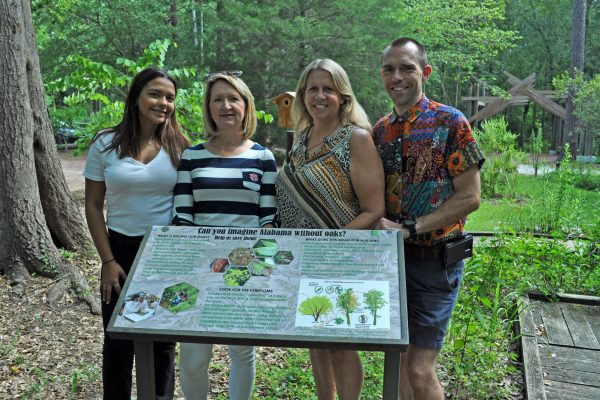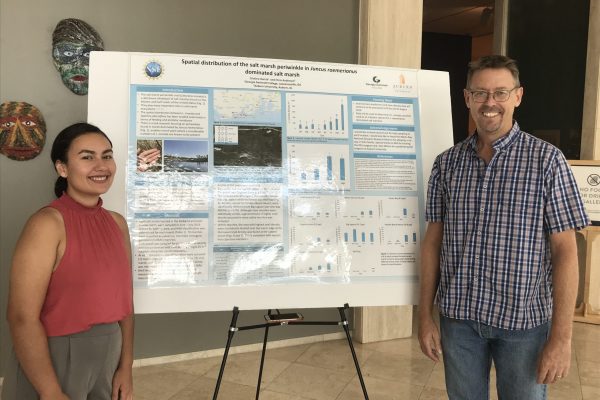SFWS faculty hosted two undergraduate students this summer through the National Science Foundation’s Research Experiences for Undergraduates, or REU, at Auburn University. The program provides the opportunity for visiting students to develop valuable research skills under the guidance of faculty.
Cristina Garcia, an undergraduate student at Georgia Gwinnett College, worked with Associate Professor Chris Anderson, to examine the spatial patterns associated with periwinkle snails (Littoraria irrorata) in coastal Alabama and west-Florida salt marshes. With Anderson’s guidance, Garcia performed field research to collect habitat data and measurements of the frequency, density, spatial distribution and biomass of the snails within in eight coastal salt marshes.
Garcia’s results showed snail frequency and density varied between marshes with the highest occurrences detected at sites closest to the Gulf of Mexico. “Our research suggests that this species may be suitable as an indicator for the assessment and restoration of these salt marshes,” said Garcia.
Diana P. Zurillo Riveria, an undergraduate from University of Puerto Rico, worked with Professor Lori Eckhardt. Zurillo participated in research related to the disease, sudden oak death caused by the oomycete plant pathogen, Phytophthora ramorum. The disease kills oaks and other species of trees and has had devastating effects on the oak populations on the west coast and in Europe.
Zurillo and Garcia both presented their research at the Jule Collins Smith Museum with other REU students. With the assistance of faculty and staff, Zurillo developed permanent educational signage about the disease that will be installed at the school’s Kreher Preserve and Nature Center. She also participated in a radio show to inform the public about the disease.
In addition to gaining valuable professional experience, Zurillo feels more confident about pursuing grant funding to support her graduate education. “I learned a lot of new techniques that are going to help me in my future as a researcher,” said Zurillo. “Also, I did love working in forestry so now I’m thinking of that option for grad school too.”
In an article published last year in the journal BioScience, researchers reported that college underclassmen who take part in summer research training programs—specifically, in this study, the National Science Foundation’s REU program initiative—are 48 percent more likely to pursue STEM-related doctoral degrees than demographically matched students who apply but are not selected.
Originally published in the SFWS Summer 2019 Newsletter.
(Written by Jamie Anderson)











